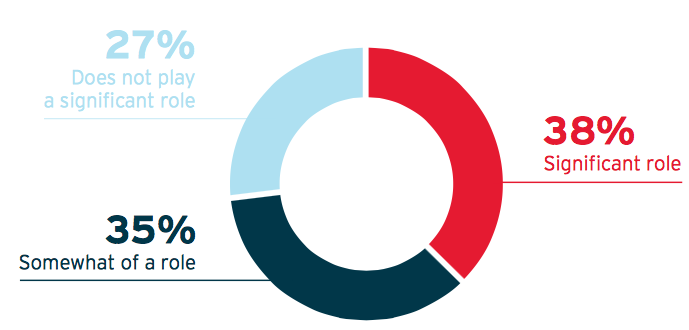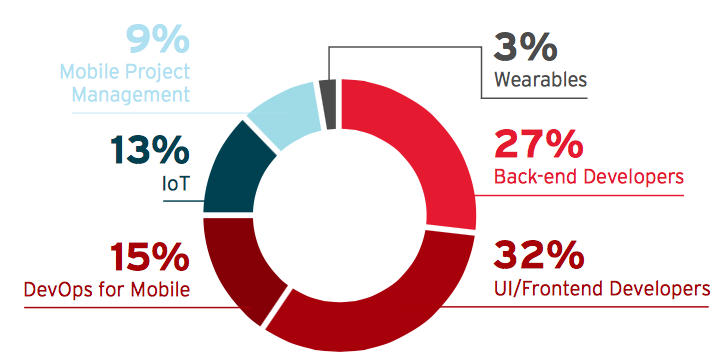Help Wanted: Mobile App Developers in Demand

A raft of new open source initiatives seeks to attract new application developers as vendors look to build up DevOps capabilities. A new study commissioned by open source leader Red Hat finds that enterprise mobility can be added to the growing list of hiring priorities as companies look for front-end developers and back-end integration skills.
Mobility is "making new demands on skillsets, tools and collaboration," the study notes.
While enterprises and their IT department still have bigger fish to fry, mobility is nevertheless making inroads at either end of the application development process. Indeed, 38 percent of survey respondents said the delivery of applications to mobile devices plays a "significant role" in their organizations.

Source: Red Hat Enterprise Mobile Landscape Survey 2015
Security (48 percent) and back-end integration (42 percent) were the top challenges for mobile development, the survey found. Still, more than half (55 percent) of respondents said they continue to develop mobile apps using "do-it-yourself back-end integration solutions."
Hence the growing enterprise need for these integration skills.
Among the emerging technologies driving mobility hiring is the Internet of Things, which among other skills like mobile project management are expected to create huge demand for mobile app development services. Indeed, the Red Hat survey cites market analyses warning that enterprise demand for mobile app developers will outpace internal IT organizations' ability to deliver them by a factor of five at the end of 2017.
Red Hat said it polled global customers to determine how they are ramping up to prepare for the coming mobile application onslaught. The survey found that enterprises are focused on both front- and back-end developer skills. Thirty-two percent of companies surveyed said they are looking for front-end development experience while 27 percent seek back-end integration skills.
"As enterprises look to fill their hiring needs for front-end coding, some analysts are recommending a team-based approach and a two-track IT approach to balance agility with traditional core IT stability, which can help organizations increase development efficiency," the Red Hat survey concludes.

Source: Red Hat Enterprise Mobile Landscape 2015
While looking for new ways for developments teams to collaborate in order to speed up the delivery of enterprise mobile applications, "organizations are looking ahead and seeking to understand the impact that emerging technologies such as IoT and wearables may have on their business," Cathal McGloin, Red Hat's vice president for mobile platforms, noted in a statement releasing the mobility survey.
The scaling of sensor networks to create the IoT and with it a torrent of data has organizations gearing up their enterprise mobility strategy, Red Hat found. Fully 70 percent of survey respondents said they are planning to incorporate IoT projects into their businesses over the next five years. In the meantime, 13 percent said they expected to hire developers with IoT experience this year.
Wearable technology has been hyped nearly as much as IoT. Nevertheless, the survey found that only 3 percent of organizations surveyed expect to hire app developers in this mobile category.
Red Hat said it commissioned researcher TechValidate to conduct the online survey of more than 100 enterprise IT decision makers at global companies between March and April of this year.
Related
George Leopold has written about science and technology for more than 30 years, focusing on electronics and aerospace technology. He previously served as executive editor of Electronic Engineering Times. Leopold is the author of "Calculated Risk: The Supersonic Life and Times of Gus Grissom" (Purdue University Press, 2016).











